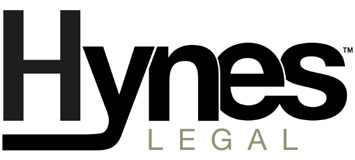Dealing with the Commissioner's Office can be a complex task
Dealing with body corporate laws in Queensland can be a complex and time-consuming task, and for the uninitiated it can lead to potentially stressful and expensive outcomes. The Queensland Government established the Office of the Commissioner for Body Corporate and Community Management (BCCM) as a specialist agency to provide information and dispute resolution services for those who live, invest or work in community titles schemes in Queensland.
What you could expect
And while the BCCM was set up with all good intentions, the practical reality is the Commissioner’s office is, like many other public services, under-funded and overworked. With the rapid expansion in strata schemes in Queensland, the result is a Commissioner’s office that is under pressure to process and handle record levels of inquiries and applications. Hynes Legal partner Frank Higginson says the added pressure on BCCM staff underscores the importance of seeking legal advice before initiating or responding to any formal processes through the Commission.
“Anyone seeking adjudication over a dispute through the Commissioner’s office needs to go in with their eyes wide open,” Mr Higginson says. “The same goes for anyone responding to an application that has been made to the BCCM. This is not a space for people who aren’t well prepared or well informed."
The majority of adjudications are conducted entirely on paper; the application to the Commissioner’s office is the instrument the adjudicator relies upon in making their decision. Mr Higginson says properly preparing an application is crucial to enhancing the chances of success. The same advice applies to anyone responding to an application made through the BCCM.
“A poorly worded or poorly compiled application or response can mean the difference between success and failure,” he says. “These are complex documents requiring careful consideration about complex areas of law and we would advise people to seek legal counsel before having any formal interaction with the process.”
The BCCM encourages disputing parties to explore all avenues of resolution before formally approaching the Commissioner’s office. Unless there has been a genuine attempt at self-resolution the BCCM will decline to consider a matter until both parties have at least attempted that path. Body corporate disputes can then go either of two routes through the Queensland BCCM: through conciliation or through adjudication. The conciliation route is where the parties in dispute meet with an independent person who understands body corporate law in Queensland and seeks to broker a mutually agreeable outcome.
Strata Webinar
Former BCCM Commissioner Chris Irons, who co-hosts the popular Hynes Legal strata webinars with Mr Higginson, says conciliation is by far the most popular route taken by disputing parties and is also the fastest process, currently taking about 6-8 weeks after application. In contrast, adjudication can take as long as 12 months or more, depending on the complexity of the case and the quality of the application.
“It's all paper based,” Mr Irons said in a recent Hynes webinar on the topic. “There's no hearings, there’s no oral discussions or arguments or anything like that. So, you put in your application and then you wait for the outcome.”
Because adjudicators must rely on the documentation that parties supply, there is often the temptation to pad out the application with large amounts of information that is only tangential to the issue in dispute. Former BCCM adjudicator and barrister Sean Barry told a recent Hynes webinar that he had heard of an application that was 1500-pages long that include pages of irrelevant information.
“Filling an application full of irrelevant material and irrelevant events that go back 20 years that holds no interest to the adjudicator whatsoever just bogs the process down,” he said.
Mr Barry said a common issue in applications was parties re-heating past grievances that bore no relevance to the matter at hand. Applicants should be concise, explicit about what they are seeking and provide only the pertinent material to be considered. Mr Higginson said because many body corporate disputes were emotional at their core, rather than commercial, applications to the BCCM could spiral out of control unless they were handled by professionals who were experienced in how the Office of the Body Corporate Commissioner operated.
“There is the temptation for someone in dispute with their body corporate to go full barrack-room lawyer and try to represent themselves through this process, but that is fraught with peril,” he said. “We’ve seen too many applications either fail or become lengthy and costly nightmares because people have started a process that they didn’t fully understand or where they didn’t appreciate the complexities involved.”
Former BCCM Commissioner Chris Irons said opting to follow the adjudication path was not for the faint of heart.
“You’ve got to be resilient enough to go through the process,” he said. “It’s one thing to seek justice. It's quite another thing to be able to sustain yourself through the rigorous process that you'll have to go through... It’s 12 months of action, paperwork, thinking, stressing, doing. You've got to actually be match fit to do it. And if you're not match fit, there’s no point embarking on the process.”






